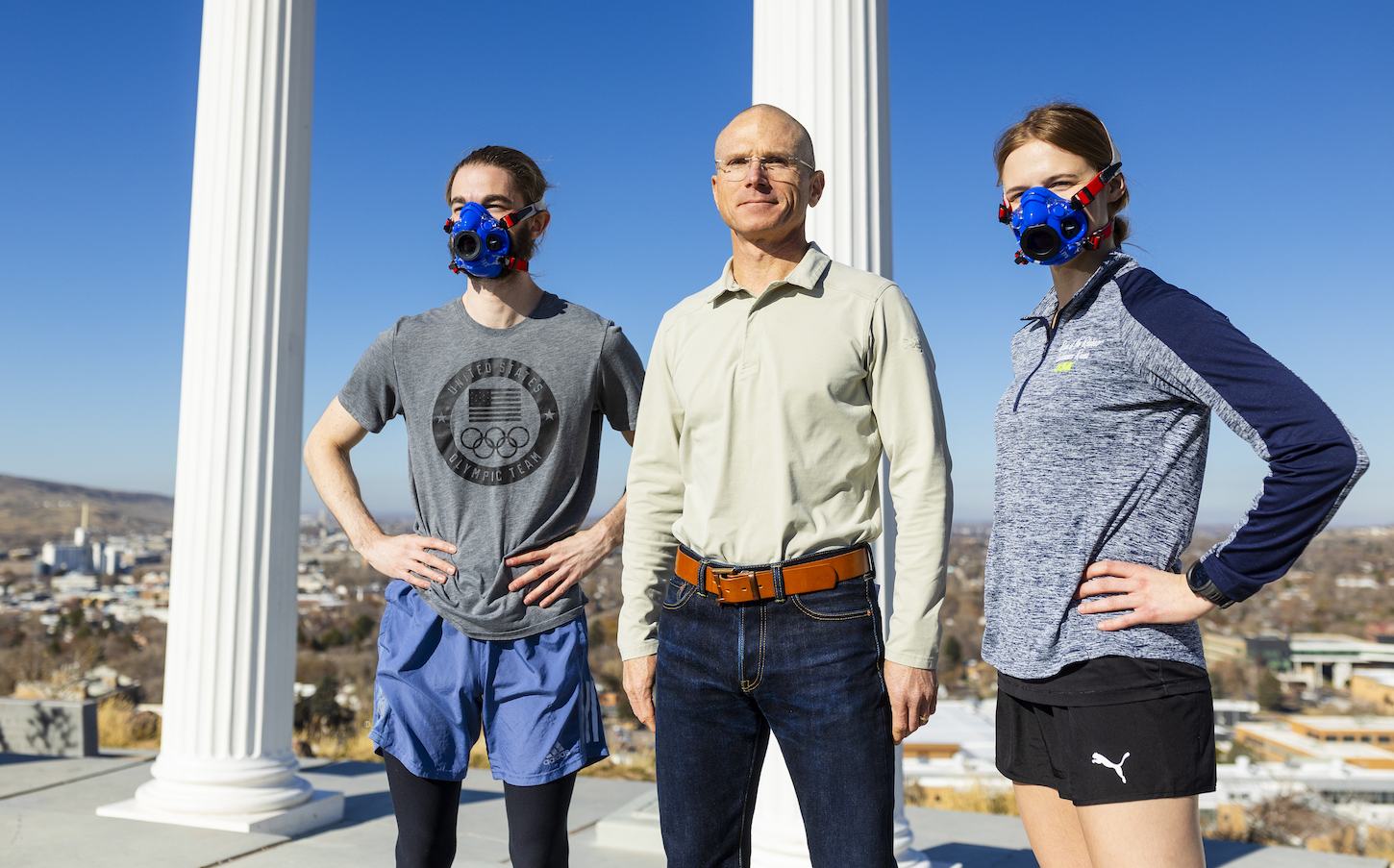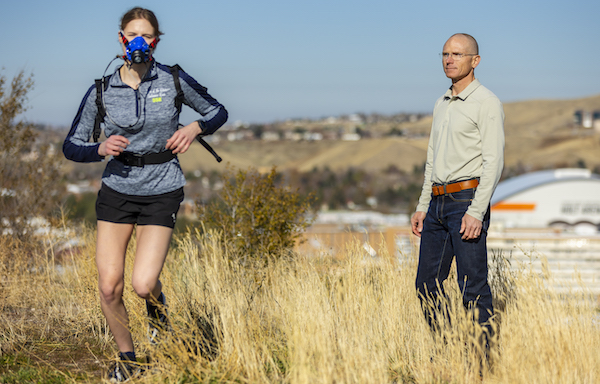Idaho State Professor’s Ultra-running Research Featured by Outside Online
December 12, 2023

One of the leading publishers of all things outdoors is shining the spotlight on research by an Idaho State University professor.
Recently, Outside Online's Sweat Science series took a dive into the findings of Shawn Bearden, professor in the Department of Biological Sciences and an expert in exercise physiology, and his colleagues from around the world’s research into the sport of ultra-endurance running (UER). Their study, “Limits of Ultra: Towards an Interdisciplinary Understanding of Ultra-Endurance Running Performance,” was published in the journal Sports Medicine and summarizes “our current understanding of the major limitations in UER” and explores the “physiological and psychological systems required for running UER events.”
“For the first time, we brought together experts from all over the world from all the various and relevant fields to produce a consensus document on the factors that limit these extremes of human capacity,” said Bearden.

Ultra-endurance running, also called ultra-running or ultra-marathons, are long-distance foot races that span more than the 26.2 miles of a standard marathon and are sometimes held in some of the most punishing physical environments on the planet. Locally, the Scout Mountain Ultra takes place in the hills surrounding ISU’s Pocatello campus each June. Bearden, an ultra-runner himself, has completed the Scout Mountain Ultra’s 100-mile distance twice, among many other ultra-marathons. He also hosted the 150-episode Science of Ultra podcast from 2015 to 2021, which featured Bearden and his fellow experts on human performance discussing all that goes into preparing for and competing in an ultra-running event.
“The really long events, like 100 miles in big mountains, involve far more than physical stamina,” explained Bearden. “One has to master the skills to maintain one’s body, like fixing blisters, having the appropriate clothing changes as weather changes, running with a headlamp at night, minimizing chaffing, etc.”
Getting enough to eat and drink in the midst of a race is another factor.
“Fueling during these events is a major challenge because we’re not built to digest and run simultaneously. Our guts rebel on us, and many people deal with everything from nausea to severe gastrointestinal distress, but getting enough calories digested is the only way the body can continue moving forward,” continued Bearden. “The same goes for staying hydrated. It’s challenging because we tend to sweat faster than we can reabsorb, especially in hotter races.”
And lastly, mastering the psychological part of ultra-running proves to be the make-or-break point for many of these athletes.
“Finally, but most importantly, the brain does crazy things out there, and we can go into unhelpful self-narratives when we're so exhausted," Bearden said. “From the deep mental lows that come from calorie depletion to hallucinations from sleep deprivation, keeping the right attitude to continue moving forward can be the biggest challenge.”
In his lab, Bearden’s research focuses on better understanding how our body’s systems change over time when those systems are being challenged via exercise. He studies lactate thresholds, power output and economy, how bodies utilize different energy sources, and more.
“It’s fun to explore and study the extremes of human capacity, but ultimately, we are studying how we are supposed to function,” said Bearden. “Exercise is not a stress. It’s our normal state. Sitting around all day is the stress. Our bodies and brains were not built for going ultra-marathon distances, but they were built to be far more active, just like every other animal in nature. When we study very active people, we are studying the evolutionarily normal, or baseline, state of what it is to be a human. Only by knowing what it is to be a normal Homo sapiens, i.e., very fit, only then can we understand what is going wrong in the beginning stages of modern diseases, which manifest due to the extreme stresses of being sedentary."
For more information on Idaho State University’s Department of Biological Sciences, visit isu.edu/biology.
Prospective students can book a campus tour at isu.edu/visit/.
Categories:
